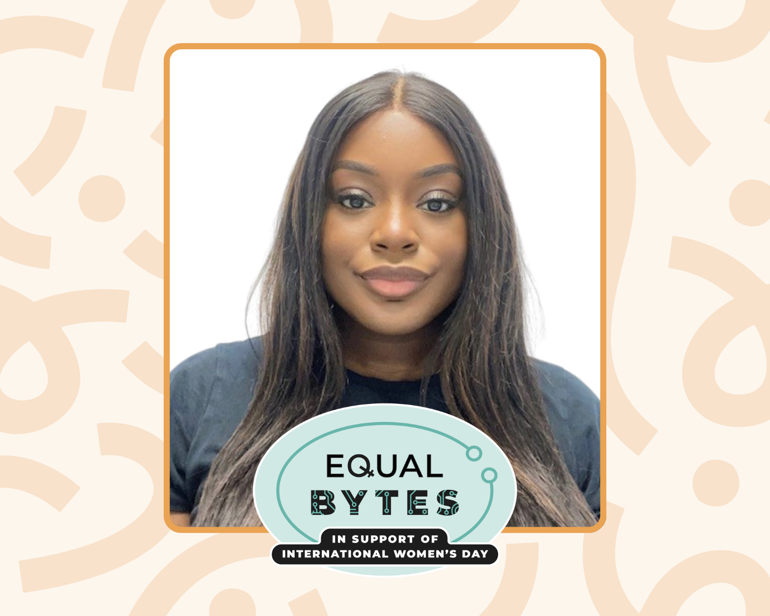Sherelle Garwood
Empowering young women to thrive in tech | An interview with Sherelle Garwood
Izzy Miller:
Sherelle, can you share a little about your background and what inspired you to support young people, particularly women, in entering the tech industry?
Sherelle Garwood:
My name’s Sherelle Garwood. I went to university and studied Computer Science, which I really enjoyed. It wasn’t originally what I had planned to do—it was a bit of a sidestep—but I fell in love with tech. I then went on to do a PGCE in Computer and Education, and recently completed my master’s in Cyber Security. So, my academic background is heavily focused on tech.
Alongside that, I worked with young people a lot. I was involved with a children’s charity and did some work for social services. I always knew I loved working with young people, and I always knew I loved tech. That combination naturally led me into teaching. I started out teaching both Maths and Computer Science before becoming a fully-fledged Computer Science teacher.
I’ve always found tech fascinating—how it develops, what we can use it for. But when I first started teaching, I noticed very few girls were taking Computer Science. At GCSE, I might have had one girl in a class. At A-level, I had none. That really pushed me to focus on encouraging more girls to take up Computer Science and become interested in tech.
Izzy Miller:
Absolutely. From your experience, what are some of the biggest misconceptions that young women and girls have about working in tech?
Sherelle Garwood:
One major stereotype is that tech is an anti-social career—that it’s just about sitting in a corner coding all day, with no social life. Changing that misconception has been quite difficult.
Another misconception is that you have to be a coder. Many girls believe that’s the only role in tech, but there are so many other career paths—UX design, cybersecurity, data analysis. They also don’t realise they can work in any industry. You don’t have to work for a tech company to be in tech.
A lot of this misunderstanding also comes from parents, who often don’t know what roles exist in tech because it’s still a relatively new and fast-moving industry.
Izzy Miller:
That’s so true. Have you noticed a shift in attitudes among young women towards tech careers in recent years? And if so, what do you think is driving that change?
Sherelle Garwood:
Yes, I’ve definitely seen a shift. More girls are choosing Computer Science than ever before. We’re not at a 50-50 split yet, but we’re moving in the right direction.
A big part of that is the outreach work being done by universities and major tech companies. When I was deputy head of sixth form, I saw a lot of outreach programmes specifically for women in Computer Science. These initiatives are making a real impact.
Representation has also played a huge role. Students are seeing more high-profile women in the tech industry, which makes it feel like a feasible career path. If you can see someone like you in a role, you’re more likely to believe you can do it too.
Izzy Miller:
Absolutely. Role models are so important. Seeing someone who looks like you, whether in school, online, or on social media, can be a huge confidence boost.
Despite the progress, women are still underrepresented in tech. What do you think are some of the key barriers stopping young women from getting into the industry today?
Sherelle Garwood:
A major barrier is education. We still haven’t got Computer Science education quite right. At the moment, it’s very focused on coding, machine learning, and other highly technical areas, which doesn’t appeal to everyone. There’s a huge gap for students who might be more interested in the creative side of tech, and we haven’t closed that gap yet.
Stereotypes are another issue. Girls are often encouraged to pursue careers in traditionally "nurturing" fields, such as health and social care, psychology, or sociology. STEM subjects—especially Computer Science—are not always presented as an option.
There’s also the perception that tech is a male-dominated industry lacking diversity, which puts many young women off.
Izzy Miller:
Yes, those societal expectations play a big role in shaping career choices. How can we change that narrative?
Sherelle Garwood:
We need more role models in schools. I always say, kids can’t be what they can’t see. If we’re not actively showing young people successful women in tech and introducing them to different career options, they won’t know what’s possible.
We also need to strengthen the bridge between education and industry. Teachers need to be more aware of the diverse career paths within tech so they can better inform their students. It’s not just about Computer Science teachers—careers in tech should be discussed in Maths, Business, and even Art classes.
Izzy Miller:
That’s a great point. We need to integrate career discussions across multiple subjects, not just in tech classes.
As a Computer Science teacher, what are some of the biggest challenges young women face in the classroom when engaging with tech subjects?
Sherelle Garwood:
A lot of girls show an interest in Computer Science when they’re younger, but we see a major drop-off when they start choosing their own subjects—usually around GCSE level.
A big reason for this is the fear of being the only girl in the class. Many girls worry about being outnumbered by boys, which can lead to self-doubt and a lack of confidence. They often end up choosing subjects where they’ll be surrounded by other girls, rather than taking a subject they genuinely enjoy.
Izzy Miller:
That’s a huge issue. Do you think formal tech education, like university degrees, is essential for a career in tech? Or are alternative pathways, such as apprenticeships and certifications, just as valuable?
Sherelle Garwood:
I’m a huge advocate for alternative pathways. University isn’t the only option.
As part of my role in sixth form, I worked hard to educate students about apprenticeships. There are still misconceptions about apprenticeships being for certain types of students, but in reality, they offer fantastic hands-on experience, particularly for students who thrive in a more practical environment.
Computer Science degrees only cover a small part of the tech industry. For students interested in creative tech roles, apprenticeships and alternative pathways can be a better route.
Izzy Miller:
That’s so important. There’s such high demand for digital skills—how can young women take advantage of that to secure a career in tech?
Sherelle Garwood:
There are so many pathways into tech now. I’d encourage women to research companies offering alternative routes, whether through apprenticeships, training programmes, or direct entry schemes.
You don’t have to go back to university to retrain—many companies offer programmes for career changers too. It’s never too late to start a career in tech.
Izzy Miller:
Absolutely. Many women lack confidence when entering tech. How can certifications help bridge that gap?
Sherelle Garwood:
Certifications provide the exact skills needed for specific tech roles. I’ve seen this particularly in UX design—people take certifications, gain hands-on experience, and become highly employable without needing a full degree.
Many certifications are industry-recognised and can lead directly to jobs. They also focus on practical skills rather than just abstract knowledge, which is a big advantage.
Izzy Miller:
What advice would you give to a young woman interested in tech but unsure where to start?
Sherelle Garwood:
Start by researching online. There are amazing initiatives, like Code First Girls, that can help you explore different areas of tech.
LinkedIn is also a great resource. Follow women in tech, look for role models, and engage with industry groups. Sometimes, ruling out what doesn’t interest you can be just as helpful as finding what does.
Izzy Miller:
That’s great advice. Finally, if you could change one thing to inspire more young women to enter tech, what would it be?
Sherelle Garwood:
I’d redesign the education system to show students that tech isn’t just about coding. If we can highlight how tech is used in fashion, sports, social media, and other industries, we’d attract a much broader range of students.
Izzy Miller:
Such an important message. Thank you so much, Sherelle—this has been an incredibly inspiring conversation.
Sherelle Garwood:
Thank you! It’s been a pleasure.
Related Articles
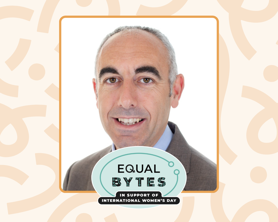 Tech
TechInclusivity in Cyber Security | An interview with Rob Black
In this insightful conversation, Rob Black, a prominent figure in the UK cybersecurity industry, discusses the importance of creating an inclusive and supportive environment for everyone, regardless of background or gender.
Read More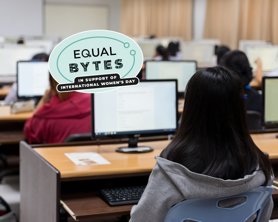 Women in Tech
Women in TechMary Kenneth Keller: A trailblazer for women in tech and education
Mary Kenneth Keller was a computer science pioneer who led the way for women in both tech and education. Discover her contributions and how she continues to inspire more women to pursue careers into STEM.
Read More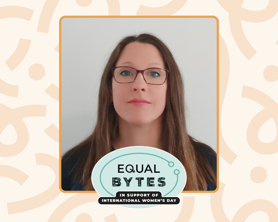 Tech
TechLife in Cyber Security | An interview with Karine Tobin
If you're curious about breaking into cybersecurity or simply need a boost of motivation to pursue your goals, this conversation is packed with insights on resilience, the power of networking, and why finding your “why” makes all the difference.
Read More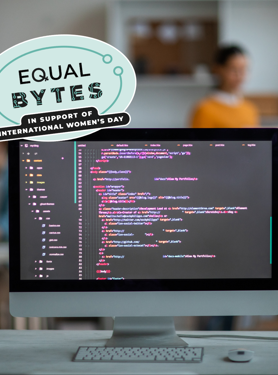 Women in Tech
Women in TechWomen in Tech: Kate's Journey into Application Support
Discover Kate's inspiring career change story into tech. From customer service to application support, this woman’s journey highlights resilience, learning to code, and overcoming challenges. Read her advice for aspiring women in tech and insights on creating inclusive workplaces.
Read More
